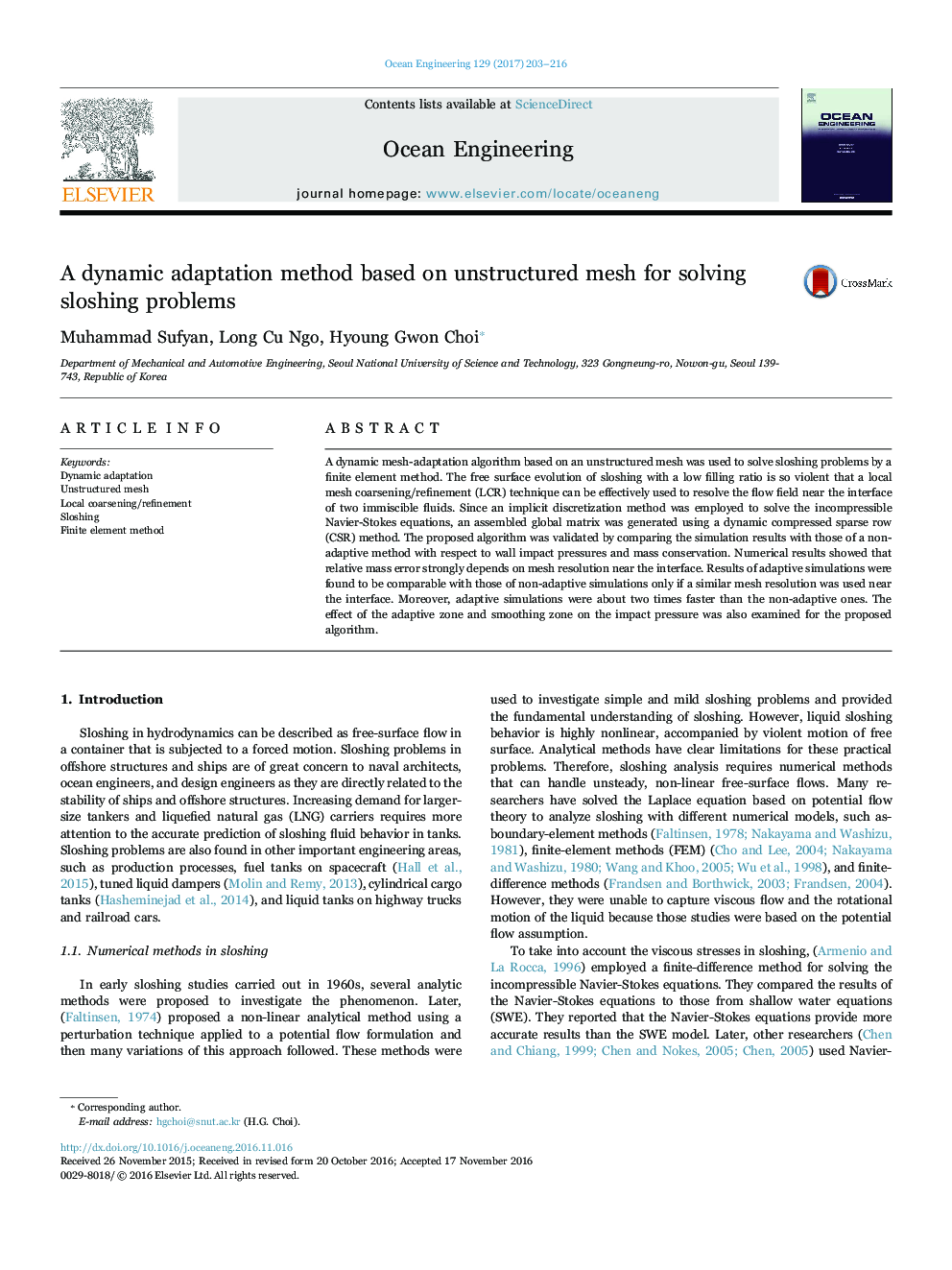| Article ID | Journal | Published Year | Pages | File Type |
|---|---|---|---|---|
| 5474680 | Ocean Engineering | 2017 | 14 Pages |
Abstract
A dynamic mesh-adaptation algorithm based on an unstructured mesh was used to solve sloshing problems by a finite element method. The free surface evolution of sloshing with a low filling ratio is so violent that a local mesh coarsening/refinement (LCR) technique can be effectively used to resolve the flow field near the interface of two immiscible fluids. Since an implicit discretization method was employed to solve the incompressible Navier-Stokes equations, an assembled global matrix was generated using a dynamic compressed sparse row (CSR) method. The proposed algorithm was validated by comparing the simulation results with those of a non-adaptive method with respect to wall impact pressures and mass conservation. Numerical results showed that relative mass error strongly depends on mesh resolution near the interface. Results of adaptive simulations were found to be comparable with those of non-adaptive simulations only if a similar mesh resolution was used near the interface. Moreover, adaptive simulations were about two times faster than the non-adaptive ones. The effect of the adaptive zone and smoothing zone on the impact pressure was also examined for the proposed algorithm.
Related Topics
Physical Sciences and Engineering
Engineering
Ocean Engineering
Authors
Muhammad Sufyan, Long Cu Ngo, Hyoung Gwon Choi,
